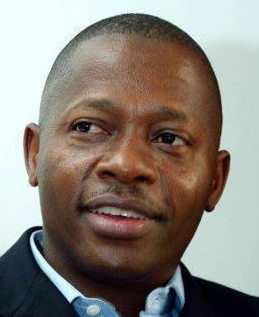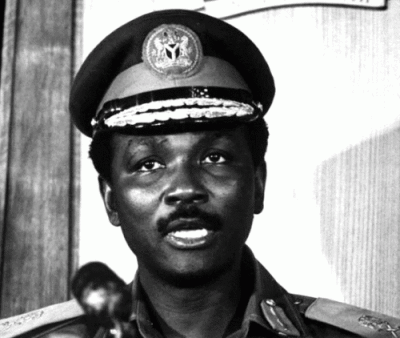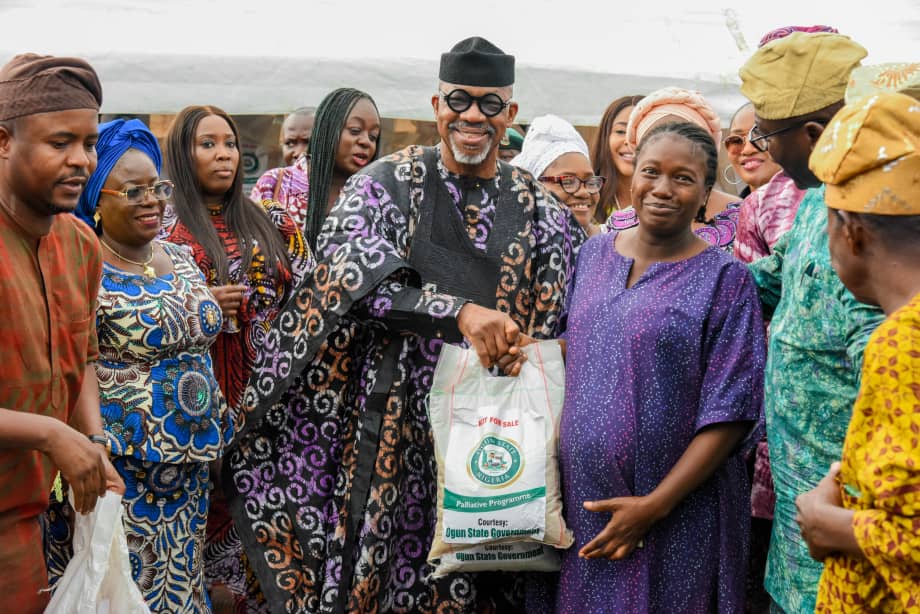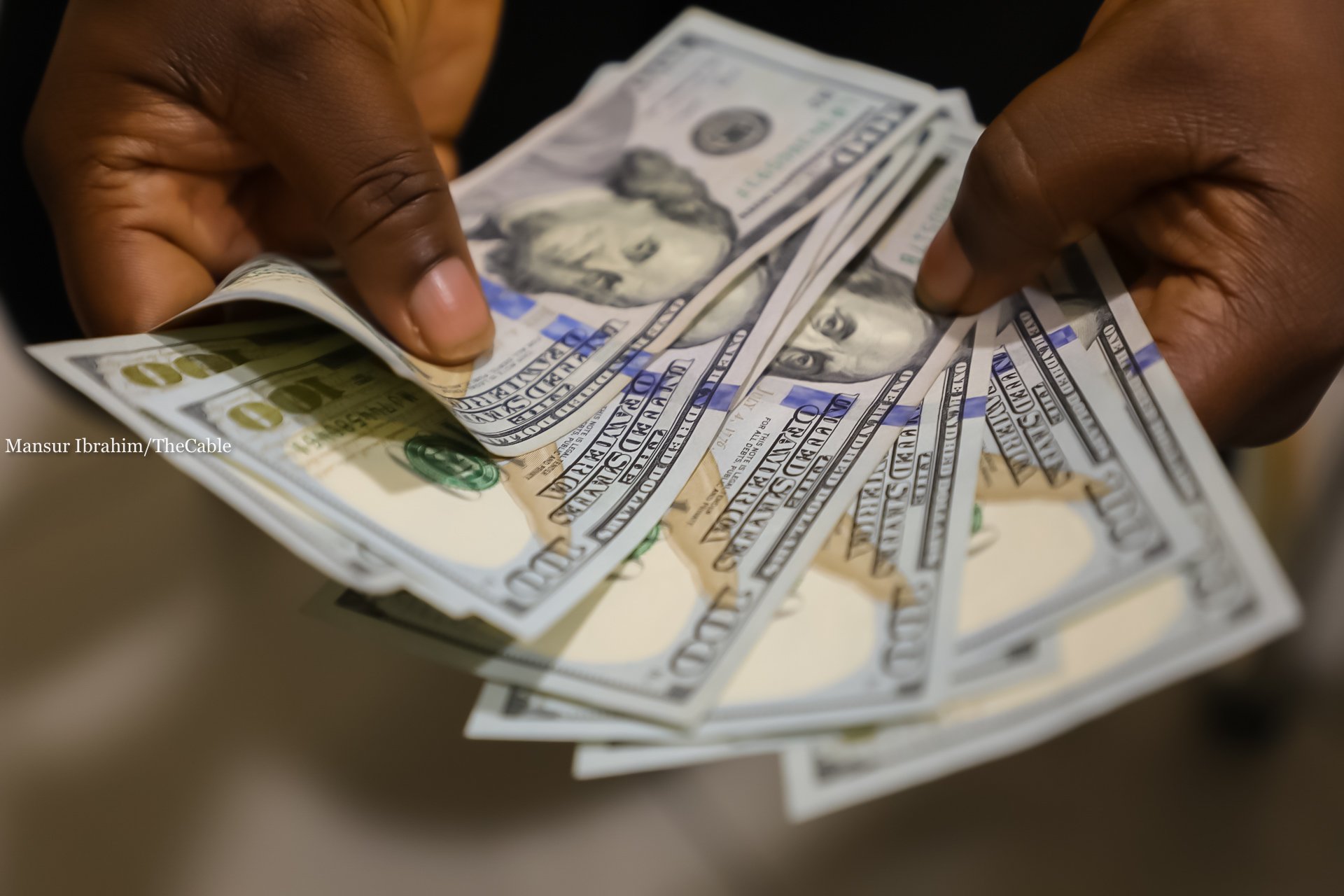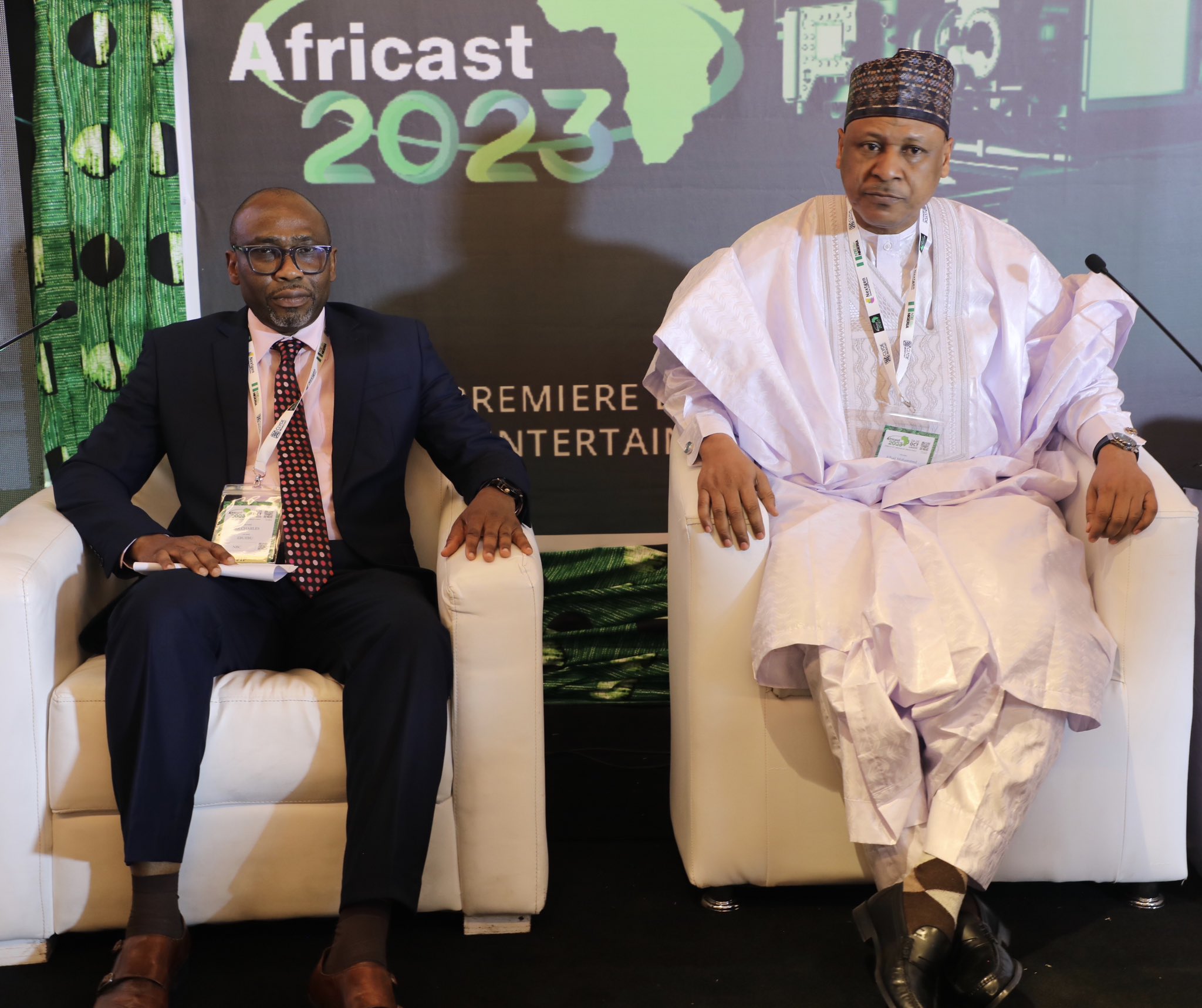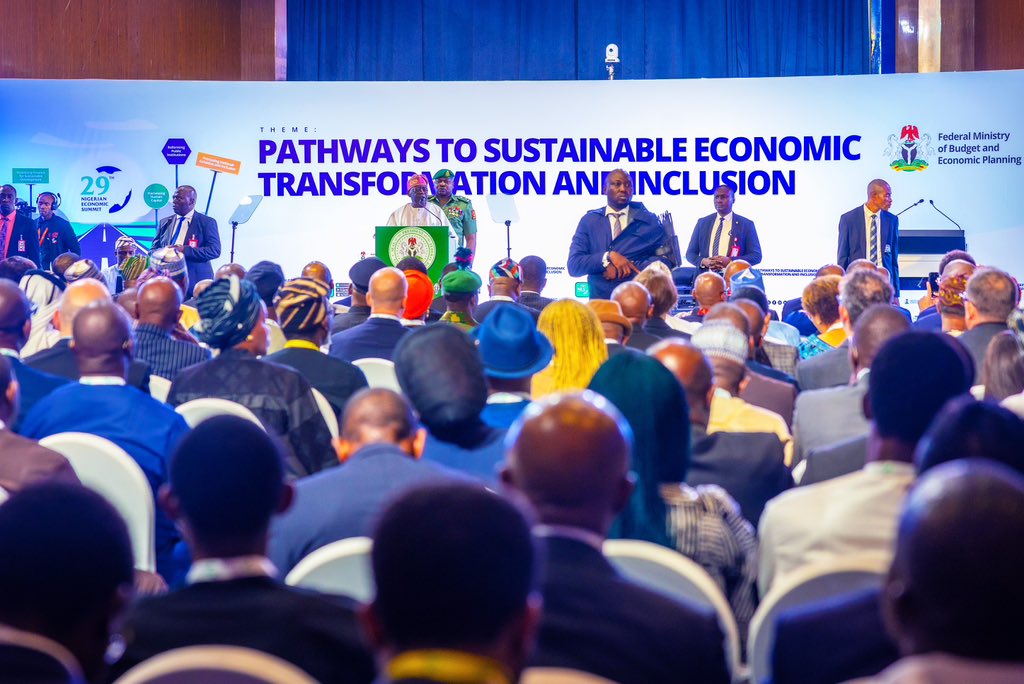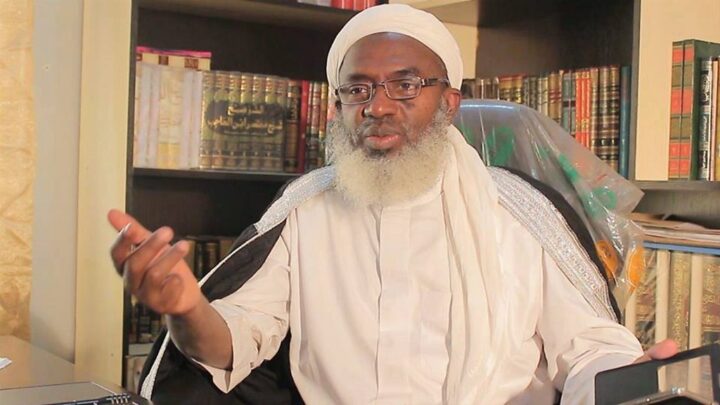My Facebook photo is a bit unusual. It is not a family scene, an image from a holiday, or some other similar keepsake from a happy personal, family, or professional event. Rather it features two middle-aged gentlemen in a genial mood. The one on the right, in a white kaftan and nondescript Hausa hat is smooth-faced with the gentle mien of a priest or a kind teacher. The second man, in glasses and a reddish embroidered “Senator” top has a trimmed moustache and beard. He’s also smiling into the camera but he doesn’t look quite as approachable or harmless as his friend. He projects a certain tough calmness; this is a man who will engage with you on his own terms, rather than some social etiquette or convention.
But the two very different men are obviously very pleased to be in each other’s company, to savor that moment together. You sense that this has not always been so. The journey to this moment was not a smooth one. But they have made it and they’re happy to be there.
The man on the left is Yakubu “Jack” Gowon, retired general, former head of state, and Nigeria’s civil war leader who led the country for a further five years after the conflict. He was in office for a total of nine years – still the longest, uninterrupted stint in power by Nigerian leader, military or civilian – before his government was ousted by the mercurial Murtala Ramat Mohammed in 1975. The other man is of course, Chukwuemeka Odumegwu Ojukwu, who was Biafra’s leader for the three bloody years the war lasted before the surrender and his departure to “seek peace” in Côte d’Ivoire.
The photo tells a straightforward story: once implacable enemies, Gowon and Ojukwu made some kind of peace with the events and memories that kept them tossing at night for many decades – and with each other – before Ojukwu’s death in London in November 2011. However, many of the surviving combatants and civilians on both sides – and their children and grandchildren – are not ready to join them in that historic photo, metaphorically speaking. And most never will. The reasons are not a mystery.
Advertisement
Two weeks ago, some media platforms went public with a “breaking story” that Gowon had joined Ojukwu on the other side. As it turned out, the news of Gowon’s demise, as Mark Twain famously dead-panned, was “grossly exaggerated”. The General from Lur in Plateau is very much alive and in decent shape at 89. Gowon, like Ojukwu a Sandhurst boy, responded to the premature reports of his death with pithy British circumspection: “I am still around and well. I am not in a hurry”.
As it was later clarified, the false news was an honest, if sloppy, mistake. The platforms had mixed up a much younger man – Professor Samuel Gowon Edoumiekumor, a former vice chancellor of Niger Delta University who recently died at 53 – with his more famous namesake. It is very likely that the late VC who was born as the civil war was coming to an end was named after Gowon. In the immediate aftermath of the war, Gowon, whose name had become a rallying cry – Go On With One Nigeria! – was immensely popular. In fact, for the post-war generation of primary and secondary school pupils, Gowon was the embodiment of Nigeria and Nigerianess.
Advertisement
Things have changed. Gowon’s popularity is much diminished principally due to the many failures of the Nigerian project since then. Patriotism is now a dirty word to many Nigerians as the vibrant hope of the post-war years have mutated into resentment, even hatred, for the country in many bitter hearts. It’s no surprise that Gowon, whose historic achievement was defeating the rebellion of a breakaway region is no longer so admired. Younger Nigerians especially find it difficult appreciate, in retrospect, the value of rescuing a union that has failed them in so many critical respects.
For Igbos who bore the brunt of the civil war, with many families still scarred by its impact five decades later, the issues are deeper and a bit more complicated. Between one million and three million lives were lost in the conflict, the overwhelming majority Igbo. It remains one of the worst conflicts of the 20th century, in terms of casualties, suffering and destruction.
Survivors of war don’t have the luxury of sharing memories of heroism with the victors. It is no surprise that the news of Gowon’s passing did not evoke much sadness in most social media spaces where young Igbos can be found. “Yakubu Gowon you are very close to the grave but I wish you could live to see Biafra restored; forever we will never forgive you and your entire household for the pain you caused us till this minute”, thundered a youth who has the photo of controversial Finland-based “revolutionary” Simon Ekpa on his profile. Another youth described Gowon as an “arch genocidist”.
I don’t share these strong negative feelings about Gowon even though I understand how deep the wells they spring from are. As head of state, he will forever bear a measure of formal responsibility for the horrors that defined the prosecution of the war. And that includes the Asaba massacre and the murderous excesses of Benjamin Adekunle and others which clearly breached the Geneva Convention. But Gowon, like Ojukwu who opposed the January 15 coup but was transformed into the eternal face of Biafra by later events, was a young man thrust into labyrinthine circumstances by destiny. And he was clearly overwhelmed at many points. He certainly deserves criticism for reneging on the Aburi Accords which he signed off on before the war hawks prevailed on him.
Advertisement
But Gowon also deserves if not credit then understanding because he, unlike Murtala Mohammed, Theophilus Danjuma, IBM Haruna, and others who have maintained that the Biafrans deserved what they got for the effrontery of attempting to leave a country that was unwilling to protect them has admitted that the war was a tragedy that never should have happened. At the All Saints Anglican Cathedral in Abakaliki in Ebonyi State in 1998, according to a newspaper report, the former head of state “called on all victims of the civil war to forgive him”. He has expressed many similar sentiments over the years, using his words as a balm to soothe pain, as a bandage to bind wounds.
Personally, the video of the former head of state meeting with the military leaders of the freshly defeated Biafra in January 1970 was a turning point in my opinion of Gowon. In the grainy black and white footage, Olusegun Obasanjo who received Biafra’s surrender had brought Ojukwu’s second in command Philip Efiong and former senior officers to formally the surrender. But it was not the triumphant victor vs vanquished event that one would have expected. Rather, it was an emotional reunion of brother officers. Gowon’s pain about the war and his relief that the horrors had come to an end was palpable as he shook hands and chatted with Efiong and the others. Gowon’s actions during the war can be questioned and criticized but his claim to humanity and decency is impeccable. The two very different men in the photo did have something in common: the courage to see beyond pain and shake hands over the chasm of blood and loss.
Nwabuikwu is a member of THISDAY Editorial Board
Advertisement
Views expressed by contributors are strictly personal and not of TheCable.
